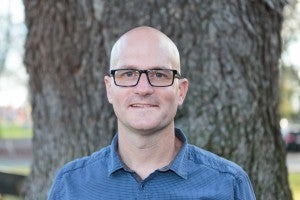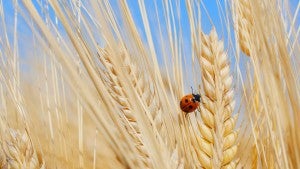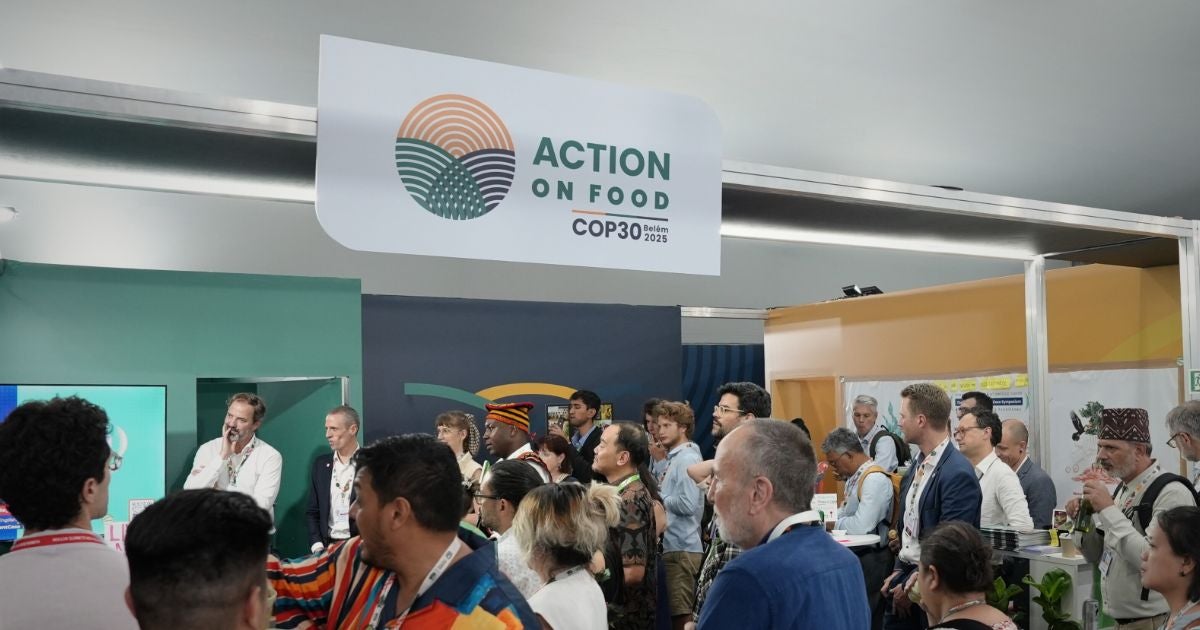How “plant doctor” Dan Sonke is making Campbell Soups’ ingredients greener

The Campbell Soup Company, along with a growing number of major food companies, is taking action to implement and support sustainable agriculture measures. It’s in their best interest to decrease the risk of supply chain disruptions.
Plus, there’s increasing consumer demand for transparency. A new report from the Chicago Council on Global Affairs found that 78 percent of Americans are interested in how their food is produced.
I asked Dan Sonke, manager of agricultural sustainability at Campbell’s, to explain how his company is working with farmers to reduce environmental impacts, why they’re working with Environmental Defense Fund, and about the unprecedented demand he’s seeing for sustainable grain.
How did you end up working in sustainability at a major food company?
I grew up on a family farm in California so agriculture is a part of my heritage. I love the rural lifestyle, and have a passion for growing things. In college I majored in environmental studies with an emphasis on agriculture. I later earned a Doctorate of Plant Medicine (DPM), which is an excellent degree for understanding sustainable agriculture systems.
After graduate school, I began working for a firm consulting on sustainable agriculture. I worked on a project to certify dairy operations in the Chesapeake Bay, and helped develop programs in almonds, hazelnuts, pears, and other crops. Four years ago I joined Campbell’s ag operations department to develop agriculture sustainability programs for the company.
How did Campbell’s get involved in sustainable agriculture?
We heard from our customers and investors that they wanted more transparency and a greater focus on sustainable ag. We initially drafted goals for reducing our environmental footprint, then after I was hired we developed a plan to meet these goals, starting with tomatoes. I created a program to research the best techniques our famers can use to grow our tomatoes, focusing on water, fertilizer, greenhouse gas emissions, soil quality, and pesticides.
Based on the success of this program, we decided to expand our focus to four other ingredients: carrots, celery, potatoes and jalapenos.

Is fertilizer efficiency an easy sell to growers?
It depends on the crop. A specialty crop like tomatoes is very different from wheat. Fertilizer is a much smaller portion of production costs for tomato farmers, but fertilizer might be a top cost for wheat farmers. Vegetable farmers also sell directly to us, while wheat may go through several steps before it reaches us.
That’s why our collaboration with EDF and United Suppliers focuses on sustainability in our wheat sourcing areas. We’re deploying SUSTAIN™, developed and deployed by United Suppliers in collaboration with EDF, to help our wheat growers improve fertilizer efficiency and improve soil health, without sacrificing yields. United Suppliers brings a direct connection to wheat growers.
Are you seeing a shift change in terms of demand for sustainable grain?
Yes, yes, yes! Especially in the last two years – I’ve spent a lot of time at different forums and sustainable agriculture is next big thing that food companies are working on. There’s a big shift happening. Customers and a desire for transparency are one driver, but we also realize as food companies that sustainability of supply reduces risk in today’s world.
There’s a growing realization that agriculture represents the largest impact on natural systems and that we need agriculture to survive. We’re starting to see a lot of organizations that haven’t thought about this before start to express an interest in improving farming practices.
I see sustainability programs as a way to communicate to the world the progress that growers have made and the environmental benefits that come from efficiency.
Related Links
Campbell’s Soup expands its fertilizer optimization programs












